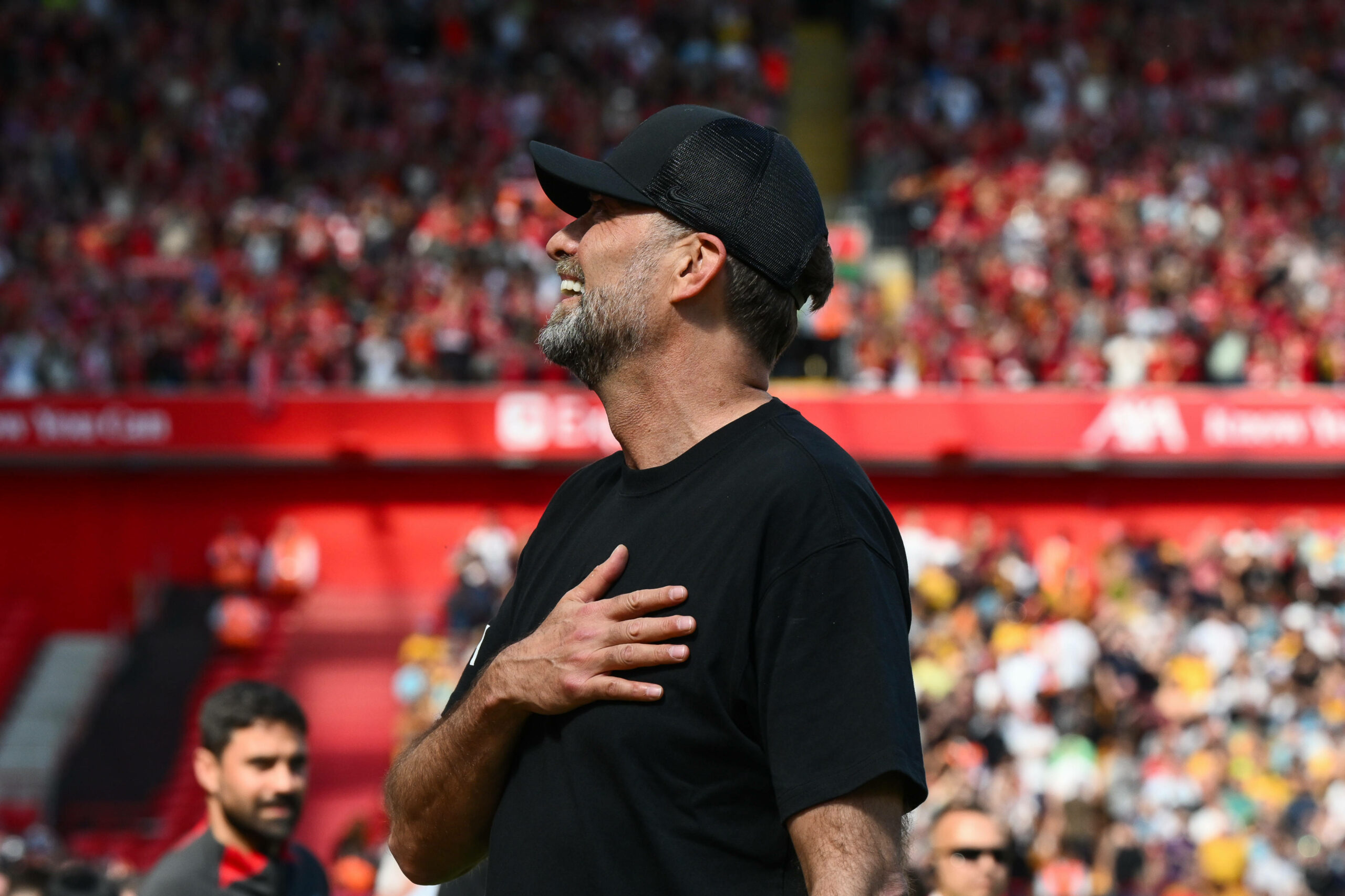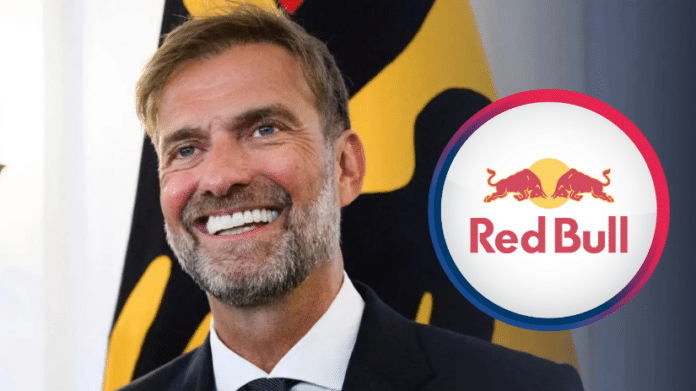Jurgen Klopp’s Red Bull Role Sparks Outrage Among Dortmund Fans
The footballing world was stunned when Jurgen Klopp, one of the most beloved figures in German football, announced his new role with Red Bull as their Head of Global Soccer. The Austrian energy drink giant, notorious for its controversial multi-club ownership model, scored a public relations coup with the appointment of Klopp, who is widely revered across Europe. Starting in January, Klopp will oversee all footballing operations within the Red Bull organisation, including clubs like RB Leipzig and Red Bull Salzburg.
However, the move has not been well-received, particularly among Borussia Dortmund supporters, who once idolised Klopp for his leadership and passion during his tenure with the club. Many feel a sense of betrayal, given Klopp’s past criticisms of clubs like Leipzig, which he previously condemned as marketing machines rather than traditional football clubs.
Red Bull’s Expanding Football Empire
Red Bull has become a major player in global football, owning clubs in Europe and beyond. In 2009, they took over fifth-division German club SSV Markranstädt, rebranding it as RB Leipzig and quickly elevating it to the Bundesliga. Today, Red Bull’s football empire spans across continents, with clubs in Austria, the United States, and Brazil, alongside a recent investment in English club Leeds United.
Despite Red Bull’s influence, RB Leipzig has stirred controversy in Germany due to the country’s unique 50+1 ownership rule. The rule requires German clubs to be majority-owned by members—essentially, fans. This arrangement ensures they have a say in crucial decisions, such as ticket prices. However, critics accuse RB Leipzig of skirting the spirit of this rule by limiting voting membership to just 17 individuals, many of whom are directly linked to Red Bull. Officially known as RasenBallsport Leipzig to comply with league regulations, Leipzig has been derisively dubbed the “most hated club in Germany.” Protests against the club are common, with opposition fans often boycotting matches or, as seen in a 2017 incident involving Dortmund fans, even resorting to violent clashes.
🚨🚨| According to @archiert1, Dortmund fans have shared their opinions on Jürgen Klopp's latest job:
🗣️ "Football is dead."
🗣️ "He’s absolutely dead to me."
🗣️ "That makes me sick." https://t.co/rs984bnm4J pic.twitter.com/6r75kHqlSf— CentreGoals. (@centregoals) October 9, 2024
Klopp’s Return to German Football Stirs Mixed Reactions
Klopp’s connection to Borussia Dortmund runs deep. From 2008 to 2015, he was the club’s charismatic leader, guiding them to two Bundesliga titles and a Champions League final. Since his departure, Dortmund fans have held him in near-legendary regard. His embrace of Red Bull has therefore shocked many. Dortmund’s ultras, as well as everyday fans, have taken to social media to vent their frustration, with some accusing him of hypocrisy.
In 2017, Klopp expressed his disapproval of the multi-club model, saying, “I’m a football romantic and I like tradition in football and all that stuff. In Germany, only two clubs sing ‘You’ll Never Walk Alone’ before the game – and that is Mainz and Dortmund.” His criticism of clubs like Leipzig as “tinpot clubs” built solely for marketing purposes has now come back to haunt him. One Dortmund fan wrote on X: “How much can one squander their reputation within a second?” Another reflected on the potential upside of Klopp’s departure, noting that it might finally allow Dortmund fans to move on from the “nostalgic moaning” of Klopp’s era.
Christian Falk’s Take on Klopp’s Decision
Christian Falk, the head of football at Bild, a German newspaper, recently commented on Klopp’s controversial decision on the BBC’s Euro Leagues podcast. He revealed that Klopp had been considering the move for months, describing the situation as challenging for Dortmund fans to accept. According to Falk, Klopp hesitated initially, wary of how his decision might be perceived. However, he ultimately felt that the position with Red Bull would offer him a respite from the relentless grind of club management. “He won’t have to watch football every day,” Falk noted, referring to Klopp’s new, less intensive role. Falk admitted the move has sparked debate across Germany about whether Klopp has “sold his soul,” but he also recognised the enduring love that Germans have for Klopp: “By the end, after say a month or so, it will die down. The love for Jurgen Klopp in this country means he can almost do anything.”
Dortmund’s Perspective on the Multi-Club Model
Dortmund have long positioned themselves as champions of German football’s traditional values. The club’s leadership has often voiced its displeasure with the rise of clubs that they view as commercial entities, rather than community-driven teams with grassroots support. Dortmund CEO Hans-Joachim Watzke, who worked closely with Klopp during some of the club’s most successful years, struck a more conciliatory tone regarding Klopp’s Red Bull appointment. “I wish Jurgen, as essentially always, to be lucky in his new job,” he remarked, acknowledging that he was not surprised by the move, having discussed it with Klopp directly.
Many in German football had hoped Klopp would eventually take charge of the national team. With Julian Nagelsmann currently managing Germany, there’s speculation that Klopp could be a future candidate for the role, possibly after the 2026 World Cup. German football legend Lothar Matthäus shared his hope that Klopp will not remain a backroom figure indefinitely. “I believe Red Bull thinks very big – Jurgen Klopp is very big. It fits together,” Matthäus said. “There will be changes, as he will receive the total support of the company. Then let’s see how it turns out, and let’s nevertheless hope that he will perhaps return to the coaching bench at some point in the coming years.”

New Chapter for Klopp
As Klopp embarks on his Red Bull journey, it remains to be seen how his new role will impact his legacy, particularly among Dortmund fans. The disappointment some feel is palpable, with accusations of hypocrisy and “selling out” reflecting their sense of betrayal. Others, however, have taken a more pragmatic view. Klopp’s claim that he was “running out of energy” when he left Liverpool earlier this year now carries a hint of irony, as he joins a brand famously associated with energy drinks.
Despite the outcry, Klopp has ensured he has an exit strategy from Red Bull, should he wish to return to coaching. Should the German national team come calling, Klopp’s decision to join Red Bull might be seen in a different light, as simply a means of recharging before his next big challenge. Klopp’s charisma and tactical acumen have long made him a desirable figure in German football, and there is little doubt that he would be warmly welcomed back to a managerial role, even by those who currently criticise his choice.
Nine years on from the start of his Liverpool tenure, Klopp now enters an entirely new chapter, one that raises questions about the intersection of tradition, commercialisation, and personal ambition. For Klopp, the future may well hold a return to coaching, either in Germany or elsewhere. But for now, his alliance with Red Bull marks a fascinating, if controversial, evolution in the career of one of football’s most compelling characters.

